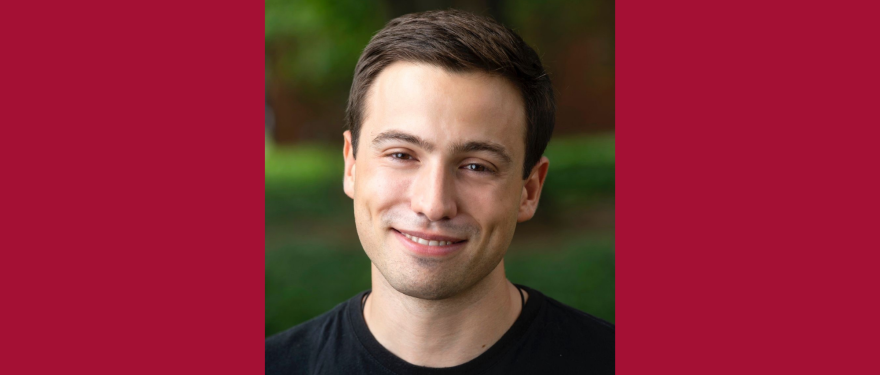The HBS 2+2 program is a deferred admission process for current students in their final year of study, either in college or a full-time master’s degree program. If you are admitted through 2+2, you work for two to four years in a field of your choice before enrolling in the regular HBS MBA Program. This spring we’re speaking with current MBA students who were admitted through 2+2 to learn what they did during their deferral years.
Here’s an interview with Vasilis Mornto (MBA 2023).
Why did you decide to apply to HBS via the 2+2 deferred admissions process?
I decided to apply to the 2+2 program, after hearing about it from an alumna, for two main reasons. First and foremost, I wanted to have flexibility with regards to the type of work I would do before going to business school, without having to think if it fits under the umbrella of a “bigger story” (even though in the end it did!). I wanted to be able to experiment and take career risks and HBS seemed to allow me to do that through the 2+2 program. The second reason I applied to HBS is because it felt like there was zero downside. In fact, the way I thought about it was that even if I was not admitted to the program, I would still gain so much from the process that it would justify the effort put in it. From being better prepared to re-apply in the future, to getting to reflect and know myself and my future aspirations better, there were just so many benefits that came hand in hand with applying.
How long did you defer your 2+2 admission?
I deferred for a total of three academic years.
What job(s) did you have during your deferral?
I spent the first two years working in consulting in Greece and other countries in Europe. And I loved it! I was fortunate enough to work next to very inspiring individuals and be part of many project teams that were hard-working but at the same time fun and engaging, which ultimately offered me a solid understanding of business and made me a better person and leader. It was then time for me to serve in the Greek Navy, which is a mandatory requirement for all male individuals that must be fulfilled up until a certain age. In parallel, I interned at a very promising Insurtech company called Hellasdirect with its two Co-Founders, Alexis and Emilios, working on exciting M&A projects. Through this experience I realized that investing is a space I would like to double down on and so the final step of my pre-HBS journey was interning with a global private equity firm which had just opened an office in my hometown of Athens, Greece. It was a fantastic experience because it combined learning about finance and the investment world with experiencing entrepreneurial elements of launching a business in a new geography.
Did 2+2 change your path?
Yes, because I am sure I would not have made such professional decisions—namely serving in the Navy at that point in time, joining an Insurtech company, and trying out private equity—had it not been for the 2+2 program. I had the flexibility to get to know myself better and think about my goals. It also gave me an opportunity to further enrich my background before going to business school, thus being able to contribute even more unique perspectives based on previous experiences to the HBS classroom.
What advice do you have for prospective MBA students considering 2+2?
Start thinking as early as possible about what drives you as a person and what you would bring to the HBS classroom—it is much harder than it sounds. Also, reach out to current and/or former HBS students for advice and guidance on how to bring your best self forward in the application. Last, choose your recommenders very carefully; in my opinion, what matters most is to choose recommenders with whom you have worked closely and who can write about your attributes in the most honest and accurate way.

